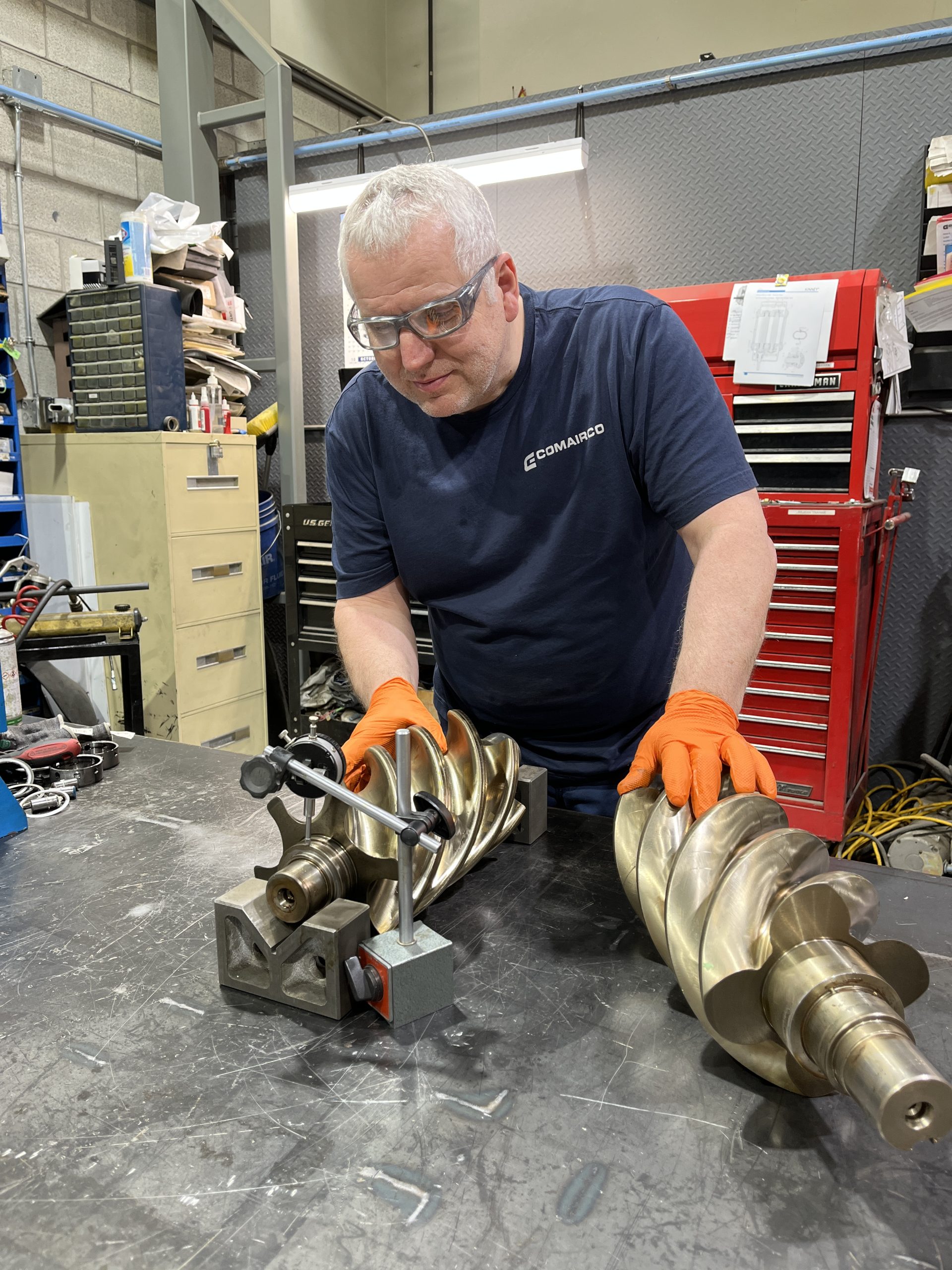By Comairco
Compressed air is so essential to so many industries that it is often referred to as “the fourth utility”. At the heart of every mining operation is some kind of air compressor, and if the air stops the work stops.
Potash extraction and refining is particularly air-intensive, requiring compressed air for everything from drills to crushers to conveyors. Most potash operations will have more than 1,000 HP in working air compressors, often running 24/7.
When purchasing an air compressor, great consideration is given to the specifications and purchase price, but maintenance is often overlooked. A properly maintained air compressor will use less energy and last much longer, resulting in a reduced lifetime cost of ownership. As such, the cost of compressor maintenance should be thought of as an investment in cost savings.
The most common air compressor type is the oil-injected rotary screw compressor. These compressors have four main maintenance items:
- The oil filter element
- The inlet air filter element
- The air-oil separator element
- The lubricating oil
Oil filter element
Contaminants in your compressor lubricant (metal, water, acid, and other particulates) will reduce performance and can lead to air end failure. An exceptional filter will help reject some of the smallest particles, maintaining the fluid’s quality and performance while helping to protect internal components.
Inlet air filter element
Your air filter is critical for shielding the compressor from airborne contaminants. Without a quality filter in place, dirt builds up in the air end — dragging down the machine’s performance and increasing maintenance costs. Not all elements are created equally, and the efficiency rating of the element should be considered. For example, an element rated at 99.9 per cent efficiency (per ISO5011) will catch particles up to five times smaller compared to substitute products.
Air-oil separator element
Just as dust contaminates air, so too can compressor fluid. Without the proper parts, an oil flooded compressor will dish out excess levels of lubricant along with the air. The function of the air/fluid separator is to retain fluid in the system for re-use in the compressor unit.
A high-quality separator should be rated for an oil carry-over rate of one to two parts per million, while a lower quality element may be rated for five parts per million. Although this sounds like a small difference in contamination, for a 100HP compressor with a 24/7 operating schedule it equates to a difference of eight gallons of oil loss per year.
With a high-quality element, fluid is effectively retained and re-used, meaning fewer top-offs — saving you money.
Lubricating oil
It’s vital to trust what goes into your air compressor as much as the machine itself. Lubricants serve a critical role in compressor performance, with three major functions:
- Lubricate rotors and bearings during compression,
- Help dissipate heat produced by compression,
- Seal gaps between rotors.
We strongly recommend Sullube by Sullair, an extended life, polyglycol base, and synthetic fluid for stationary rotary screw compressors. Proven for more than a quarter-century, this long-lasting fluid costs less per hour over your equipment’s life. It also prevents the formation of varnish — the leading cause of rotary screw compressor air end failure — and keeps compressors running exceptionally clean and cool.
Oil analysis
Many manufacturer warranties now require periodic analysis of the compressor oil, often it is a requirement for maintaining the warranty. A fluid analysis program can help predict potential problems before a major or unplanned repair occurs — helping avoid unnecessary downtime and plan service and maintenance actions during the most optimal times.









